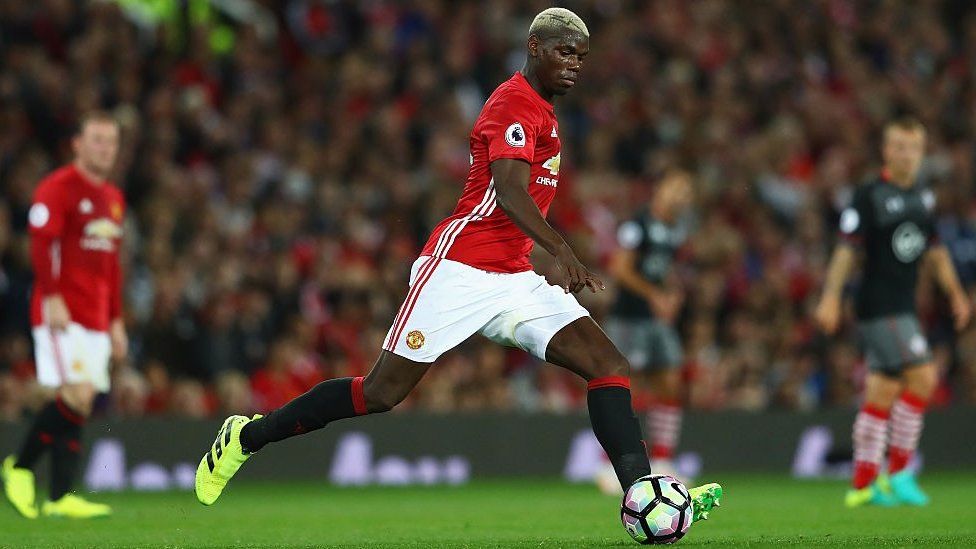Premier League summer transfer spending up for sixth year
- Published

Summer football transfer spending by Premier League clubs in England has risen for the sixth year in a row.
According to figures from the sports business unit at Deloitte, clubs' total gross spending in the now-closed transfer window was £1.165bn.
The spending spree has been sparked by a new £5bn three-year television deal, which begins this season.
Each club can expect to receive between £30m and £50m from the Premier League for 2016-17 as a result of the TV deal.
Champions League goal
"Obviously a key catalyst of this spending is the TV rights, the money is there and the clubs are spending it," Dan Jones, head of the sports business unit at Deloitte, tells the BBC.
But he also points to other factors, including the chase for Champions League places.
"There is an increased competitive tension between the big clubs that was not there before, that is leading to competition in the transfer market," he says.
"There are only four Champions League qualification spots, but you have six teams chasing those slots; the two Manchester clubs, the two north London clubs [Arsenal and Tottenham], Chelsea and Liverpool.
"That tension has been accentuated by the emergence of Leicester City last season. If you have a similar wildcard team appearing this season, then you are looking at four teams from seven fighting for those precious qualifying places."
'Shop window'
Mr Jones said another reason for the spending spree could be the fact that there are new managers at Chelsea, Manchester United and Manchester City, and also a fairly recent appointment at Liverpool.
"New managers tend to rebuild their teams in their own way, and that invariably leads to activity in the transfer market," he says.
Meanwhile, another sports finance expert points to further reasons for the spending increase in recent years.
"TV money is obviously one big factor, but there are other issues, including the number of wealthy foreign investors who have come in and taken over English top clubs, such as at Manchester City," Harry Philp of Portland Advisers tells the BBC.
"In addition, the fact we have just come out of a major tournament, Euro 2016 in France, also means that more players will have been in the 'shop window' to attract the attentions of Premier League clubs with money to spend."
Battle of the broadcasters
Summer transfer spending by top flight English clubs rose between 2006-07 and 2008-09 before dropping off for the next two seasons as the effects of the economic downturn hit.
A tightening of club finances and credit availability combined to dampen down the Premier League transfer market at the turn of the decade.
However, a plethora of lucrative domestic and overseas TV deals has fuelled an upwards spiral in player spending by Premier League clubs.
Competition for broadcasting rights in the UK has been driven in recent years by the entry of BT Sports into the market in 2012, and their challenge to Sky Sports' dominant position.
Chinese influence
The biggest transfer deal of the recent summer transfer market has been Manchester United's signing of former player Paul Pogba from Juventus for £89m.
And according to Mr Philp, the transfer spending will continue to increase over the coming seasons.
"The logic is that the next cycle of domestic and international TV rights deals for the Premier League will also bring in more cash than the previous ones," he says.
"And we also now have the factor of the Chinese looking to take over and invest at English clubs, which I think will also lead to increased transfer spending in coming years as they look to make their mark."